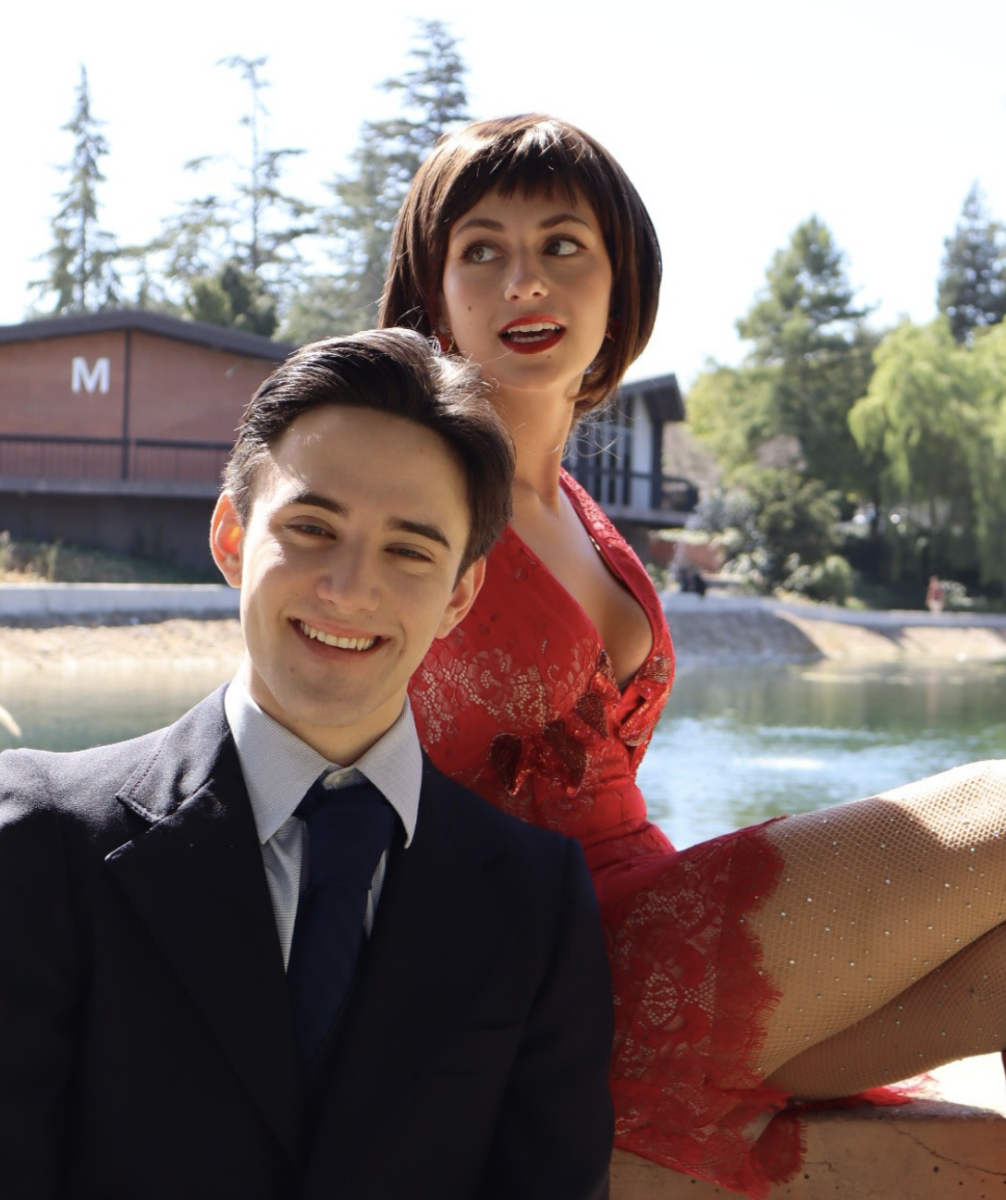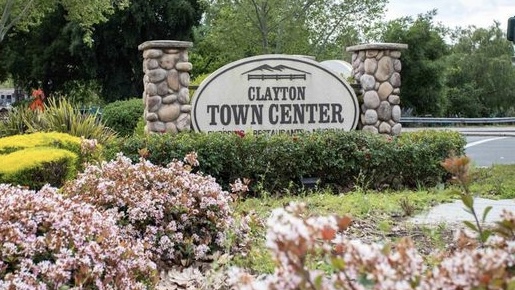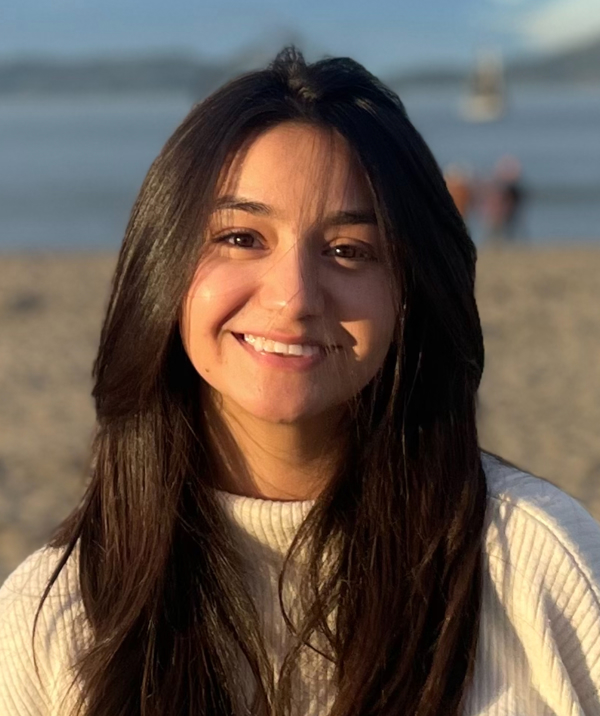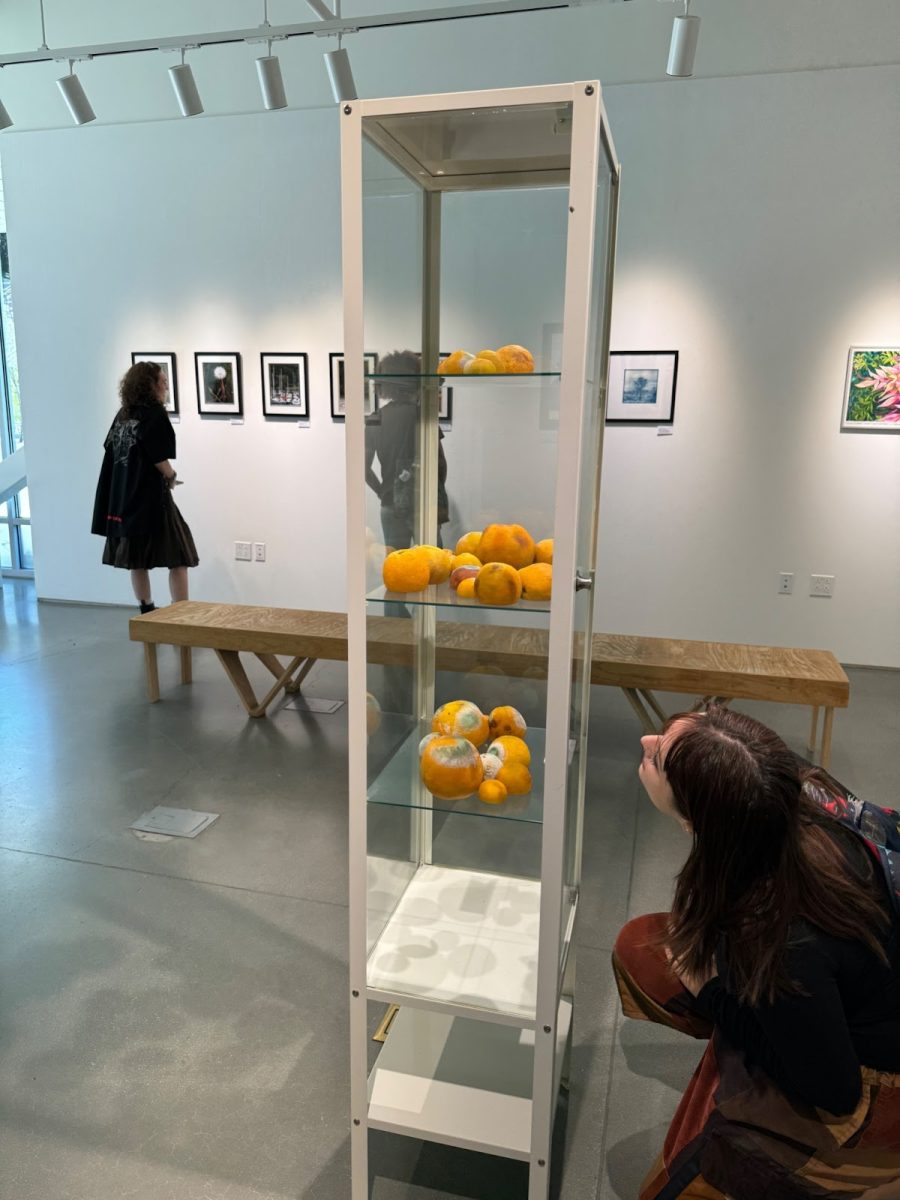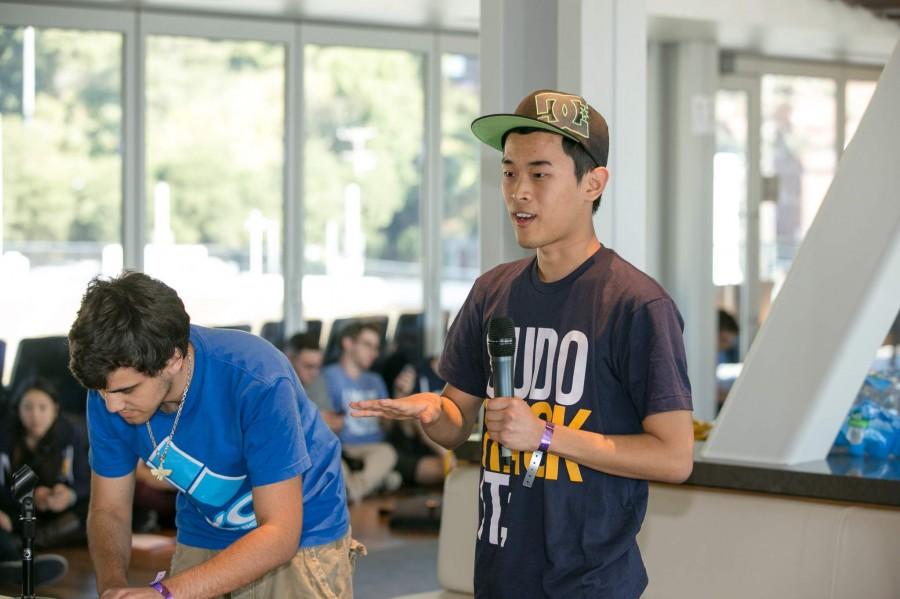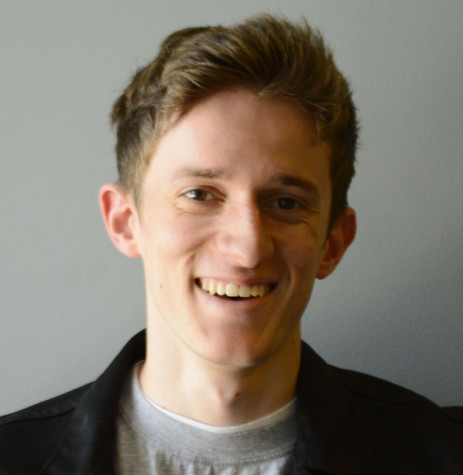DVC students place at Cal Hacks
Jeffrey Zhang / Depictograph Productions
DVC students Ashkon Honardoost, left, and Minos Park, right, present Motion Gesture Authentication at Cal Hacks
November 16, 2014
Diablo Valley College computer science students Minos Park and Ashkon Honardoost placed in the top 10 and won the award for Best Beginners Hack at the annual Cal Hacks hackathon.
The event, which took place from Oct. 3-5 at University of California Berkeley’s Memorial Stadium, has become one of the premier collegiate hacking competitions.
Using a limited amount of equipment and teams of up to four people, students have 36 hours to create software and hardware projects.
Park, 19, and Honardoost, 19, created the project called Motion Gesture Authentication. It uses a device called Leap Motion to create a new way of entering passwords.
Through the device, hand gestures are tracked at a rate of 120 frames per second. When the correct series of gestures is made with the correct hand profile, the password is unlocked.
“(The program) recognizes my hand print and bone structure,” Park says. “And it knows that it is my hand because everyone has different bone structure and handprint.
“The idea is that it’s much better than a fingerprint password,” Honardoost says. “If someone steals your fingerprint, you can’t really do anything to change (it).”
A solution, Honardoost says, is found through their program’s passive and active biometric authentication.
“It’s both a copy of your hand so it’s passive, and then the active is you putting your (hand gesture) in.”
Perhaps the most impressive is that this was the team’s first major hackathon.
Cal Hacks featured over 1500 students from some of the best universities in the country such as Princeton, Stanford and UC Berkeley, and while 300 groups entered the competition, not all finished.
Honardoost says the most difficult part was figuring out their device.
“It was really hard learning to use the device’s source code as we hadn’t really dealt with anything like it before.”
After demonstrating to the judges, Honardoost and Park were selected to the top 10 and were asked to present to the other participants.
“I swore I could have felt my head rushing with adrenaline,” Park says. “I was really tired after 36 hours of hackathon, but that announcement made it all worth it.”
Their Best Beginners Hack award, which was given to the best first-time hacker team, also earned Park and Honardoost a professional programming software called Unity 3D Pro Suite as well as a $5,000 development platform license and an all-expense-paid trip to MHacks at University of Michigan.
“This was a good test of our skills. It’s nice because we could compete with these top university students even though we’re from DVC,” Honardoost says.


